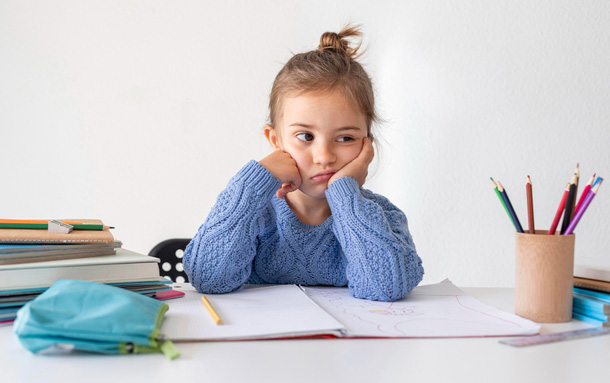Maintaining good posture is a low priority for many individuals in our fast-paced, technology-driven world. However, correct posture is not just about appearing confident; it is crucial to our overall health and well-being.
We will also delve into the symptoms of childhood depression, factors contributing to depression in children, and the importance of seeking professional help when necessary, shedding light on a topic that deserves attention and understanding.
Some potential subtopics to cover in the article could include the symptoms of childhood depression.
Understanding Childhood Depression
Understanding Childhood Depression is essential for parents, educators, and caregivers to effectively support and guide children through challenging emotional experiences. While often misconstrued as mere mood swings or temperamental behavior, childhood depression is a legitimate mental health concern that requires careful attention and understanding.
Childhood depression refers to a persistent feeling of sadness, hopelessness, and disinterest that significantly impacts a child’s emotional well-being, behavior, and overall quality of life. It is crucial to recognize that children, even at an early age, can experience complex emotions and may struggle with mental health issues. Understanding the unique manifestations of depression in children is imperative for early identification and intervention.
Unlike adult depression, childhood depression may manifest differently, often presenting as irritability, clinginess, frequent crying, or an unexplained decline in academic performance. Additionally, younger children might not possess the verbal skills to articulate their feelings, making it challenging for parents and educators to identify signs of depression accurately.
Moreover, environmental factors such as family dynamics, academic pressures, social challenges, or traumatic experiences can contribute to the development of childhood depression. Understanding these contributing factors and their impact on a child’s emotional well-being can provide valuable insights into potential triggers and necessary support systems.
Recognizing the severity of childhood depression and its potential long-term effects is crucial in providing timely and appropriate interventions. Early identification and compassionate support can significantly improve a child’s ability to cope with and overcome depressive symptoms, fostering healthy emotional development and resilience.
By fostering awareness and understanding of childhood depression, communities can create a supportive and nurturing environment that promotes emotional well-being and helps children navigate the complexities of their emotional landscape with resilience and confidence.
Recognizing Signs of Depression in Elementary School Children
Depression is not limited to adults; it can also affect children, and parents, caregivers, and educators need to recognize the signs early on. Depression in elementary school children might manifest in various ways, and these signs can sometimes be mistaken for typical mood swings or behavioral issues. Here are some key signs to watch out for:
Persistent Sadness
Children experiencing depression may exhibit prolonged periods of sadness, tearfulness, or feelings of hopelessness. They might seem consistent down without an apparent reason.
Social Withdrawal
Depressed children might withdraw from their friends and activities they once enjoyed. They may avoid social interactions, leading to isolation and loneliness.
Changes in Appetite and Sleep Patterns
Depression can affect a child’s eating habits and sleep patterns. Some children may experience increased appetite and sleepiness, while others might lose interest in food and suffer from insomnia.
Irritability and Anger
Depression in children can sometimes manifest as irritability and a tendency to get angry quickly over minor issues.
Decline in Academic Performance
A child’s academic performance might suffer due to a lack of concentration and motivation caused by depression.

Factors that contribute to depression in children
Understanding the Causes of Childhood Depression
Depression in children is a complex and multifaceted condition that various factors can influence. Identifying and addressing these contributing elements is crucial to provide the best support for children in need. Some common factors contributing to childhood depression include:
Genetic Predisposition
A family history of depression or other mental health disorders can increase a child’s risk of experiencing depression.
Environmental Stressors
Exposure to adverse events such as parental divorce, family conflict, trauma, or abuse can significantly impact a child’s emotional well-being.
Academic Pressure
Excessive academic expectations and pressure to perform well in school can lead to stress and anxiety, possibly contributing to depression.
Social Challenges
Difficulty in forming and maintaining friendships or facing bullying can be emotionally distressing for a child, potentially leading to depression.
Biological Factors
Imbalances in brain chemistry and hormonal changes during development can play a role in childhood depression.

The importance of seeking professional help when necessary
Providing Support and Seeking Professional Guidance
When signs of depression are observed in elementary school children, it is essential to take them seriously and seek professional help when necessary. As adults, we play a significant role in supporting children’s mental health and well-being. Here’s why seeking professional help is crucial:
Accurate Diagnosis
Only a trained mental health professional can accurately diagnose depression in children, as the symptoms may overlap with other conditions.
Tailored Treatment
Childhood depression requires specialized care and treatment plans to suit each child’s unique needs.
Preventing Long-Term Impact
Early intervention can help prevent the long-term negative impact of depression on a child’s emotional, social, and academic development.
Building Coping Strategies
Therapists can work with children to develop healthy coping mechanisms and resilience to deal with life’s challenges.
Creating a Supportive Environment
Professional guidance can also help parents, teachers, and caregivers understand how to create a supportive and nurturing environment for the child.
Conclusion
Maintaining a correct posture is not just about having a poised appearance; it goes far beyond aesthetics. It is integral to overall health, promoting physical well-being and reducing the risk of various health issues. Additionally, recognizing the signs of depression in elementary school children, understanding the contributing factors, and seeking professional help when needed are essential for the well-being of our young ones.
Remember that good physical and mental health is a collective responsibility. By promoting proper posture and mental health awareness; we can create a healthier and happier future for the next generation. So, let’s stand tall and support one another in this journey toward wellness.







